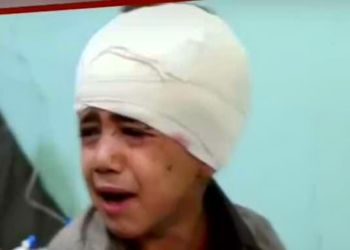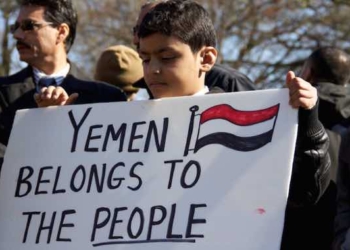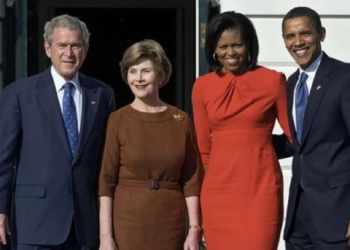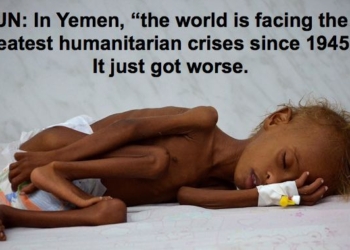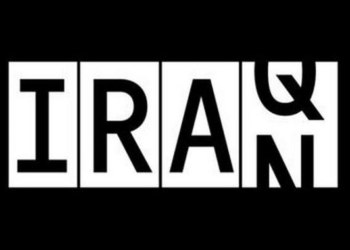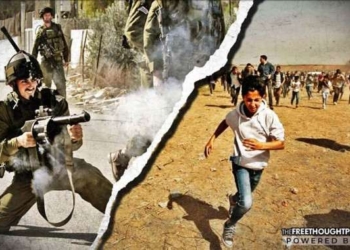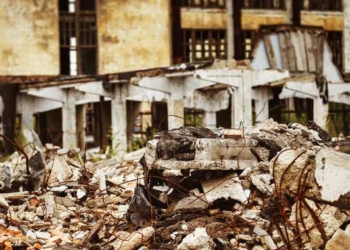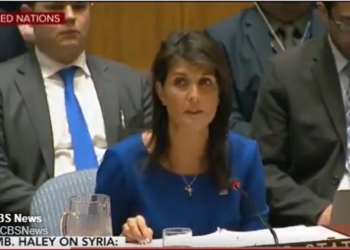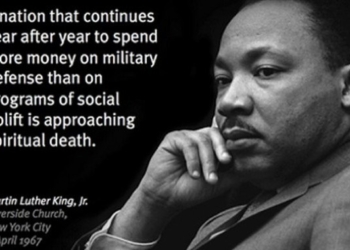Military
The Human Cost of War for Afghan Children
War has had a terrible impact on children in Afghanistan. After almost two decades of United States development efforts, with...
Read more8 Things That Are Undermining Your Freedom That You Need To Know About (But Probably Don’t)
Here are 8 things that are undermining your freedom that you need to know about (but probably don’t) by Gary...
Read more‘War Crimes’: Lawmakers Demand Answers About US Role in Slaughter of Yemeni Civilians
In the wake of the U.S.-backed Saudi-led coalition's horrific bombing of a school bus last week that killed 40 Yemeni children...
Read more‘God Only Knows’: The Tortured, Killed, or Forcibly Disappeared People of Yemen
The Yemenis mean us no harm and have committed no crime against us. US citizens bear responsibility for the US...
Read moreRalph Nader Asks Former First Ladies: Why No “Heartfelt Concern for Tens of Thousands of Children Killed or Seriously Maimed” by Their Husbands’ Wars?
Consumer advocate Ralph Nader puts check on Laura Bush and Michelle Obama for selective criticism when it comes to kids...
Read more‘Dark Moment of Shame’: With Explicit US Backing, Saudi Attack on Yemen’s Humanitarian Lifeline Begins
With a "green light" from the Trump administration and essential military support from the U.S. government, Saudi-led forces plowed ahead with...
Read moreIraq 2.0: New US Secretary of State Setting the Stage for Regime Change in Iran – Threatens to ‘Crush’ Iran
After Pompeo’s unveiled “Plan B” for nuclear negotiations—which comes around two weeks after President Donald Trump violated the Iran nuclear...
Read moreIf Any Other Country Was Shooting Civilians Like Israel, The US Would Be Calling For Invasion By Now
The death toll in Gaza increased dramatically on Monday as Israeli Defense Forces opened fire on thousands of Palestinian civilians,...
Read moreAmericans Bear Direct Responsibility for the Horrific Reality in Gaza
Once again, the Israeli military has turned its guns on Gaza—this time on unarmed protestors, in a series of shootings...
Read moreThe Average American Taxpayer Sent $3,456 to the Pentagon Last Year for Military
As Americans rushed to pay their taxes on Tuesday before the official deadline, peace groups reminded the public of the...
Read more7 Questions About the Syria Airstrikes That Aren’t Being Asked by Corporate Media
The media’s job, we are told, is to ask skeptical questions about the people in power. That didn’t happen in...
Read moreThe War in Syria was a US Intervention Since “Day 1”
A 1983 document signed by former CIA officer Graham Fuller titled, “Bringing Real Muscle to Bear Against Syria” (PDF), states...
Read moreWorld Leaders Condemn Attack on Syria as US Threatens Additional Airstrikes
Holding up the U.N. charter, which allows the use of military force for members only when necessary for self-defense or...
Read moreThere’s a Good Chance We’re Being Lied to About the Chemical Attack in Syria
In August 2012, then-President Barack Obama publicly warned the Assad government that the red line for his administration was “a...
Read moreWake Up People! NOW Is the Time to Transform Our War Economy
We need a Poor People’s Campaign to amplify the voices of regular folks above the lobby of militarized industry, a...
Read more




